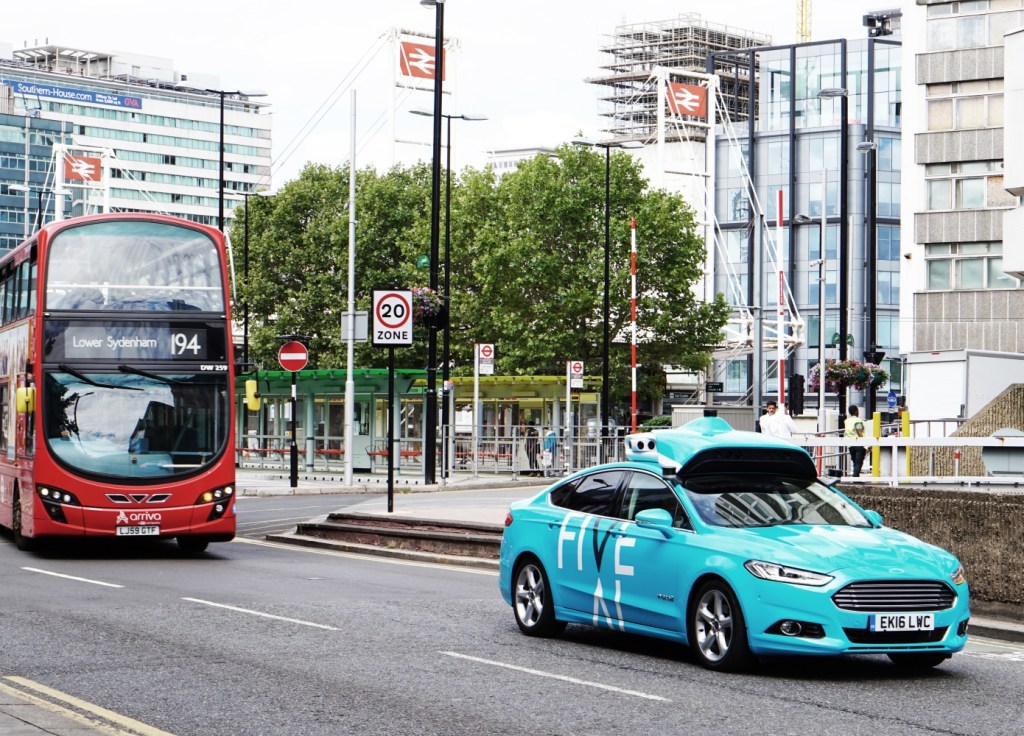Consolidation is moving ahead in the world of autonomous driving, with the latest development coming out of Europe. Today, Bosch announced that it would be acquiring Five.ai, the autonomous driving startup that started with big ambitions to build and operate its own fleet of robotaxis but ultimately pivoted to focusing on technology development as a B2B play.
Financial terms of the deal are not being disclosed, the companies said, but Five had been looking for a buyer and Bosch said that it secured the deal by beating out “other takeover bidders.” It will be picking up not just IP from Five, but also some 140 employees in the U.K. Bosch noted that the acquisition is still pending approval by regulators, specifically antitrust authorities. It should take roughly up to two months to close.
Five had raised around $78 million in funding, and according to PitchBook data was last valued at $216 million in its last round, a $41 million investment in March 2020 that coincided with the company’s B2B pivot.
Five’s investors were a mix of strategic and financial backers that included the insurance giant Direct Line, the U.K. government and VCs like Notion and Lakestar … but also Sistema, the Russian investment giant that is listed in London and has been feeling the effects of the sanctions on its home country: most recently it said it might have to de-list from the LSE because of a law that Russia looks prepared to pass requiring Russian companies to terminate their foreign depository programs.
“Bosch intends to acquire all of the shares in Five and we are of course complying and will continue to comply with all legal and statutory requirements, including sanctions,” a spokesperson said when asked about Sistema’s minority stake in Five. From what we understand, if required due to sanctions, Bosch would put funds into a holding account if needed.
Bosch itself has been long on self-driving car technology, although like many, its stated ambitions — it is a major OEM and supplier to the automotive industry and forged a partnership with Daimler in 2017 where it promised fully autonomous vehicles in five years (which would be … 2022) — have been outstripped by self-driving reality. That was a hard truth for Five, too.
“A year and a bit ago we thought we would probably build the entire thing and take it to market as a whole system,” co-founder and CEO Stan Boland told me back in 2020. “But we gradually realized just how deep and complex that would be. It was probably through 2019 that we realized that the right thing to do is to focus in on the key pieces.”
All told, Five had been very quiet in recent times: it last updated its news feed with a partnership with another autonomous tech startup, Cognata, in January 2021, over a year ago; and its last blog post on Medium, on agile working, was in June 2021.
Just as Five had been focused on a pivot to software, Bosch has already been a very active player in that market and how it relates to autonomous systems and other next-generation software and hardware, but it has also been investing in autonomous vehicle companies, too: it’s part of the list of strategic backers of Momenta in China.
“Automated driving is set to make road traffic safer. We want Five to give an extra boost to our work in software development for safe automated driving, and offer our customers European-made technology,” says Dr. Markus Heyn, member of the Bosch board of management and chairman of the Mobility Solutions business sector. Headquartered in Cambridge, U.K., Five is to be part of the Bosch Cross-Domain Computing Solutions division.
“Scale matters in building automated driving technology. Bosch is a global leader in driving assistance technologies, with core technologies and vast data lakes that will be essential in bringing safe self-driving systems to market. We’re excited for Five to become part of Europe’s most powerful SAE Level 4 player and to be a part of Bosch’s future success,” added Stan Boland in a statement in today’s announcement.
The deal comes amid a number of other M&A plays in the world of autonomous vehicles, including Magna acquiring the assets of Optimus Ride; GM buying out SoftBank’s stake in Cruise; VW reportedly looking to buy out Huawei’s autonomous driving unit; Lidar specialist Luminar buying Freedom Photonics; and more.
Updated with comment from Bosch regarding Sistema’s shareholding in Five.































Comment